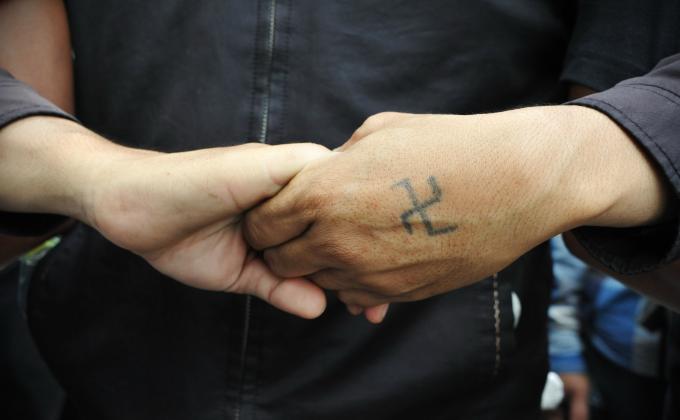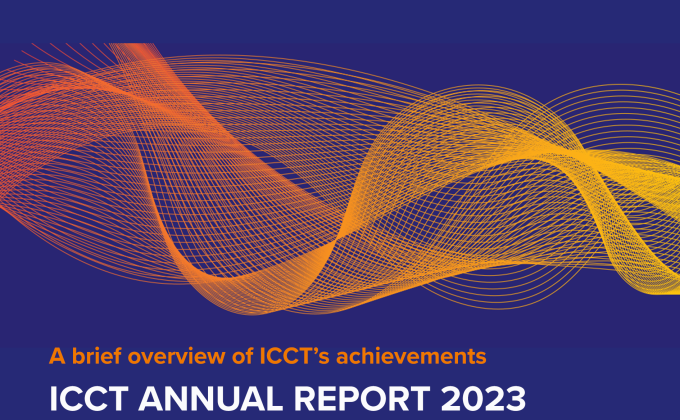The popular uprisings in Northern Africa and the Middle East carry a very strong message. They are showing us, professionals involved in the field of counter-terrorism, and our politicians the best way forward in our struggle against political violence. The message is that the best way to take away the support for terrorist actions, and the ideology that fuels them, is supporting socio-political freedom and above all increased political space.
The repressive regimes in Northern Africa and beyond have tried, and succeeded, to convince the world that the choice was either supporting their authoritarian rule or to be stuck with the only possible alternative: Islamic fundamentalism. This Islamic fundamentalism is, according to these regimes, either embodied by Al Qaeda, or in the more sophisticated version by the Muslim Brotherhood. In the dictators’ discourse, the former would inevitably create a breeding ground for violent jihadism, whilst the latter would attempt a totalitarian takeover via democratic elections of the one-man, one-vote, one-time variety.
This narrative is now being shattered by the citizens of the greater Middle East region. The people do not demand a new government based on Sharia, this uprising is not about differing religious interpretations. On the contrary, it is about political space, freedom and – yes, the word is out there – democracy.
Interestingly, Al Qaeda’s narrative coincides with the narrative of those repressive regimes; terrorist organisations such as Al Qaeda claim that they are the only alternative to oppressive regimes in Muslim majority states. By presenting this dichotomous, black or white, picture of the political landscape, both actors have successfully prolonged the life span of existing dictatorships. Through depicting the violent extremist approach as the only legitimate alternative to oppression and by dictatorships seeking support domestically and abroad to counter the threat of such organisations, Al Qaeda and the repressive governments continuously strengthen each other’s narratives, installing fear in the hearts of the people.
All that the (former) dictators needed to do, in order to justify their repressive policies and actions, is to hint at the danger of Islamism erupting in the absence of their rule. In this regard, Al Qaeda and the oppressive regimes throughout the region have been involved in a deadly tango for two. They have strengthened each other’s position. And the likes of Kaddafi will do anything to keep playing this card.
Unfortunately for the Ben Alis, Mubaraks and Kaddafis of this world, ordinary citizens have finally been able to unravel this myth. They have shown that the way forward is not fear but freedom, not repression but the creation of a vibrant political space. This perception has led to uprisings all over the region, propelled further by youngsters sharing thoughts, plans, analysis and support in the blogosphere and via social networking sites.
Many in the ‘West’ seem to have underestimated the diversity and genuine longing for justice and freedom among the citizens in Muslim majority states. For a long time already, religious scholars have deconstructed the so-called religious foundations of the Islamist narrative. Islam knows no religious foundation for their violent Jihad. Most recently, Dr. Muhammad Tahir-ul-Qadri, an influential Pakistani religious scholar, published a 600 page Fatwa against terrorism and suicide bombings (now also translated in English), stipulating that attacks against innocent citizens are absolutely against the teachings of Islam and that Islam does not permit such acts on any excuse, reason or pretext. The ideology of Al Qaeda and similar organisations is being deconstructed and delegitimised; politically, religiously and socially.
The message that Kaddafi sends out to the world today is clear: “If you want to fight Al Qaeda you need to support me”. He is not the only one claiming this, but he seems to perfectly embody the madness and immorality of the argument. For those who truly want to counter terrorism, it is best to promote political space and freedom … not the opposite.
This commentary also featured in the Herzliya-based International Institute for Counter-Terrorism and the Islamabad-based Center for Research & Security Studies









